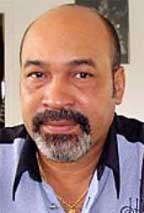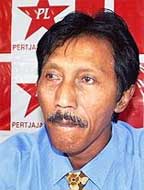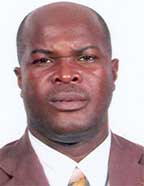The quest of Desi Bouterse’s Mega Combination (MC) to forge a coalition government took a new twist this week, when two of the parties originally being courted by the group, decided to form a bloc against the MC.


Reports coming out of Suriname yesterday said that on Friday, Ronnie Brunswijk of the A- Combination and Paul Somohardjo of the People’s Alliance signed a co-operative agreement, signifying that they will be negotiating as a bloc. The A- Combination had captured 7 seats and the People’s Alliance secured 6 seats in the May 25 elections. Together the parties have 13 seats in the 51-seat National Assembly. Brunswijk had previously agreed to be part of a coalition government with the MC but has since had a change of heart. Somohardjo too had been in talks with Bouterse about a possible coalition but these talks fell through.
The Parliament meets on Wednesday for the first time since the elections and there is uncertainty as to which groups will form the country’s next government. No party has the 2/3 majority in the 51-seat National Assembly needed to elect a new President and Vice President or even the simple majority of 32 seats needed to form a new government. The MC captured 23 seats in the elections, while the New Front Alliance captured 14 seats and the Development and Unity party captured the remaining seat. No new government can be formed without the involvement of the MC. The other parties combined have secured 28 seats in the Parliament.

Although Bouterse is yet to comment on the recent developments, a leading member of his party Jenny Geerlings, during a radio interview, said she was not worried, since the MC still has the majority in the People’s Assembly.
A majority in the 919-seat People’s Assembly would be enough to allow the Mega Combination to name its President and Vice-President. The Mega Combination had hoped to avoid going to the People’s Assembly since this is a lengthy process which is also costly. Word out of Suriname is that Bouterse is still interested in the presidency.
Bouterse, a convicted drug trafficker, had seized power in 1980 following a coup d’état and ruled until 1987 when he stepped down because of international pressure. He briefly seized power again in 1990, following a second coup d’état. He and 11 others are currently being tried in a military court for the killing of 15 opponents in 1982 while he was head of a military junta. He remains popular in Suriname especially among the young people and the poor.








